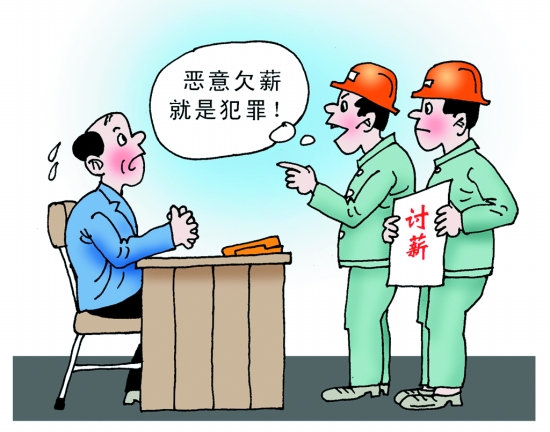The government of Ningxia region has launched a campaign to ensure that city employers pay their migrant workers on time.
寧夏自治區(qū)政府加大償還力度,保證農(nóng)民工工資能夠按時發(fā)放。
To understand why this is happening, let us rewind back a few days.
要想了解這一事件,我們先要把時間倒回幾天前。
The Ningxia Hui Autonomous Region lies deep in the northwestern hinterland of China, and it is one of the poorer regions of the country, with about 1/6 of the population living under the poverty line.
寧夏回族自治區(qū)深處西北腹地,中國貧困地區(qū)之一,六分之一人口處于貧困線以下。
It hit the headlines on January 5 with an arson attack on a bus in the region’s capital city, Yinchuan that resulted in 17 deaths and 33 injuries.
1月5日,銀川發(fā)生公交縱火案,17人死亡,33人受傷。
The story started off with a disgruntled construction worker named Ma Yongping, who wrote on social media that he had not been properly paid for work and that the local government had done nothing about it.
事件嫌犯為建筑工人馬永平,他曾在社交媒體中寫道被拖欠工資,當?shù)卣蛔鳛椤?/p>
He then declared he will rectify the injustice by seeking revenge on society.
他稱將報復(fù)社會,反對不公正待遇。
Moments later, he was to aboard a bus with containers filled with gas and set alight the vehicle that was full of people who had nothing to do with Ma’s predicaments.
不久,馬永平攜帶汽油桶乘車,點燃公交,車上乘客與馬并無瓜葛。
Although such incidents don’t occur frequently, the arson attack came against the backdrop of a recurring theme in the story of China’s rapid urbanization.
盡管這類案件并非常見,但此縱火案卻與中國迅猛的城市化發(fā)展大背景背道而馳。
Dispute over pay between migrant workers and employers have been a major issue in China, as the economy has come to a slowdown.
由于中國經(jīng)濟放緩,農(nóng)民工工資糾紛一直被視為大問題。

So, with factory bosses running short on cash and building projects coming to a halt, workers who moved from rural areas into cities for construction and service jobs often live in fear their employers might underpay or not pay at all.
對于農(nóng)民工和服務(wù)行業(yè)從業(yè)人員來說,他們生怕雇主會因資金短缺,工地停工而發(fā)生少給或欠薪現(xiàn)象。
And so it is just days after the arson attack that the government of Ningxia announced initiatives to address this problem.
因此,縱火案發(fā)生幾天后,寧夏政府宣布采取行動加大清欠力度。
Ningxia's government said in a statement on its website that it held a meeting on January 8 to discuss ways to make sure companies give migrant workers their salaries before Spring Festival, when many return home to reunite with their families.
寧夏政府在官方發(fā)表聲明,稱政府已于1月8日召開會議,因春節(jié)返鄉(xiāng)將至,政府將確保在春節(jié)前結(jié)束農(nóng)民工拖欠案。
Companies that fail to pay their employees will be subject to criminal punishment, the government of Ningxia said.
寧夏政府表示,拖欠單位將受到法律懲罰。
Transgressors are to be punished with fines or jail terms of up to seven years.
違法者將面臨罰款,或遭受高達7年的牢獄之災(zāi)。
In the first 10 months of last year, the government identified 27 construction companies that delayed salary payments to migrant workers.
去年前10個月,27家建筑公司拖欠工資。
As punishment, these firms won’t be able to make a bid for government projects.
違規(guī)公司將無法競標政府項目。
The Yinchuan government said it dealt with more than 500 cases of unpaid wages in the first 11 months of last year.
據(jù)銀川政府表示,去年前11個月,500多起拖欠案得到處理。
That’s 22.3 percent more than in the same period of 2014.
比2014年同期增加22.3%。
These involved some 10,000 migrant workers who were owed 1.48 billion yuan.
涉及農(nóng)民工逾1萬人,拖欠工資14.8億元。
譯文屬可可英語原創(chuàng),未經(jīng)允許,不得轉(zhuǎn)載。











